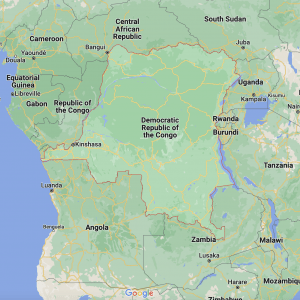Saudi Arabia’s KAUST pioneers water-saving solutions for agriculture
JEDDAH, Saudi Arabia (MNTV) — Saudi Ministry of Water, and Agriculture plans to develop innovative water management strategies in collaboration with King Abdullah University of Science and Technology (KAUST) and local farmers to address Saudi Arabia’s critical freshwater scarcity in agriculture.
As part of the KAUST Center for Sustainable Food Security, the project seeks to enhance sustainable farming in arid regions by integrating controlled environment agriculture (CEA) with advanced desalination techniques, according to a KAUST press release.
The initiative focuses on using desalination and wastewater treatment technologies to provide ‘clean enough’ water for hydroponic farming, optimizing plant health while maintaining cost efficiency.
KAUST Environmental Science and Engineering Professor Noreddine Ghaffour, principal investigator of the project, highlighted the importance of refining desalination techniques.
“Why not tailor desalination technology by removing only exactly what we want removed? This targeted approach will be more energy-efficient and cost-effective while ensuring optimal crop health,” he stated.
If successful, he added, the Kingdom will not only benefit from improved food security but also become an exporter of these innovative technologies.
Current desalination practices used by farmers are inefficient and expensive, stripping water of all ions—including essential nutrients—only to require remineralization afterward.
The KAUST research team aims to refine this process by eliminating only the specific elements harmful to each crop, reducing energy consumption and costs.
“Some crops require more salt, others need specific nutrients, and some are sensitive to boron. Our goal is to tailor the process to each crop’s needs while keeping costs minimal,” Ghaffour explained.
Launched in September 2024, the two-year project is evaluating multiple desalination techniques, including nanofiltration, electrodialysis, and brackish water reverse osmosis.
One promising method under investigation, forward osmosis, utilizes liquid-phase fertilizers to drive water purification.
Additionally, the research incorporates anaerobic membrane bioreactor technology coupled with ultraviolet disinfection to reclaim municipal wastewater, improving water quality for CEA systems.
The initiative aims to develop a comprehensive groundwater profile across Saudi Arabia, assess the best desalination methods for various crops, and refine the most effective treatment configurations for real-world applications.
According to the KAUST press release, the project will ultimately deliver desalination prototypes at Technology Readiness Levels (TRL) 4-5, supporting Saudi Arabia’s long-term sustainability goals.
By promoting resilient farming practices, expanding wastewater reuse, and reducing reliance on freshwater resources, the initiative contributes to the Kingdom’s national food security strategy.
KAUST researchers continue to drive impactful academic research, reinforcing the university’s role as a key asset in Saudi Arabia’s innovation landscape.










